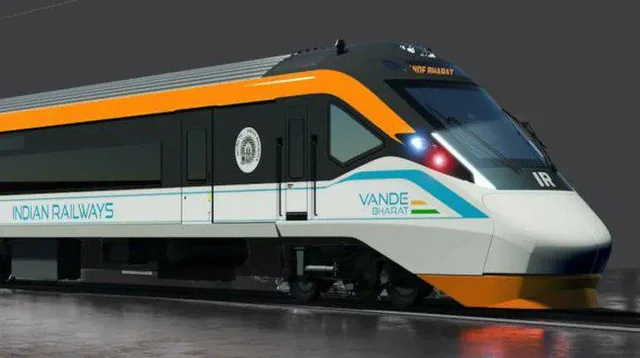The Indian Railways is on the brink of a paradigm shift as the Modi government unveils an ambitious 100-day plan aimed at revolutionizing the country’s railway infrastructure and enhancing passenger experience.

With a focus on efficiency, innovation, and passenger-centric measures, the transformative agenda encompasses a range of initiatives set to redefine the future of Indian Railways. At the forefront of this monumental overhaul is a staggering investment commitment of Rs 11 lakh crore towards the development of three economic corridors spanning 40,900 kilometers. This substantial infusion of funds underscores the government’s unwavering commitment to modernize and expand the railway network, ushering in a new era of connectivity and economic growth.
Central to the 100-day plan is the introduction of several passenger-friendly measures designed to streamline services and enhance convenience. Foremost among these initiatives is the implementation of a 24-hour ticket refund scheme, replacing the cumbersome three-day process and providing passengers with greater flexibility and ease of transaction. Additionally, the proposed launch of a comprehensive “super app” promises to revolutionize the passenger experience by offering a one-stop platform for ticketing, train tracking, and other essential services. Furthermore, the plan includes ambitious infrastructure projects such as the Udhampur-Srinagar-Baramula Rail Link project, which upon completion will facilitate seamless rail connectivity from Jammu to Kashmir. Notably, the project features engineering marvels like the Chenab Bridge, the world’s highest railway bridge, and the Anji Khad Bridge, India’s first cable-stayed bridge.
Innovation takes center stage with the introduction of sleeper versions of Vande Bharat trains, aimed at providing passengers with enhanced comfort and luxury during their rail journeys. Additionally, the impending launch of India’s first vertical-lift railway bridge, the Pamban railway bridge, signifies a significant milestone in railway engineering and connectivity. The government’s steadfast commitment to the Ahmedabad-Mumbai bullet train project underscores its vision for a high-speed, futuristic rail network. With a targeted operationalization of 320 kilometers by April 2029, the project heralds a new era of rapid transit and technological advancement in Indian Railways. Modi government’s bold vision for Indian Railways epitomizes a transformative agenda aimed at redefining the country’s rail landscape. Through strategic investments, innovative reforms, and visionary projects, the government seeks to propel Indian Railways into the forefront of global excellence, ushering in a new era of connectivity, efficiency, and passenger satisfaction.


